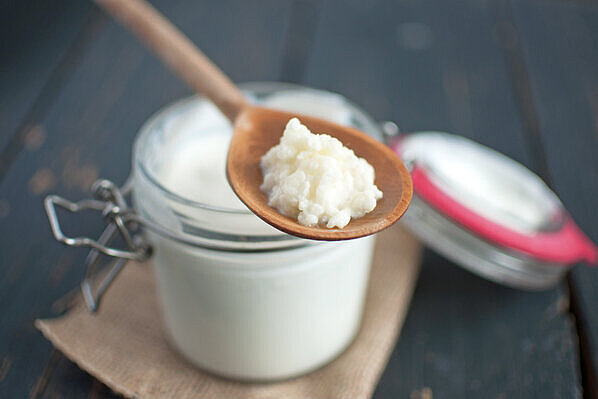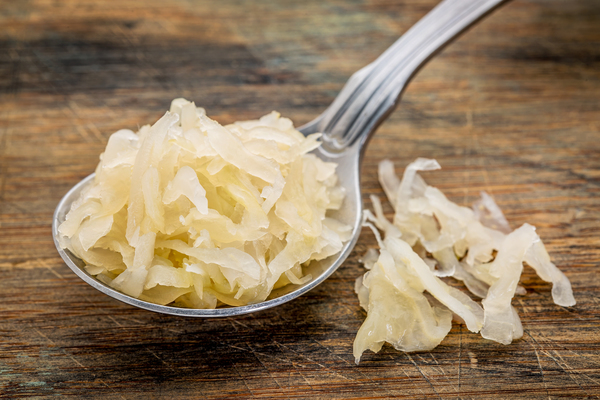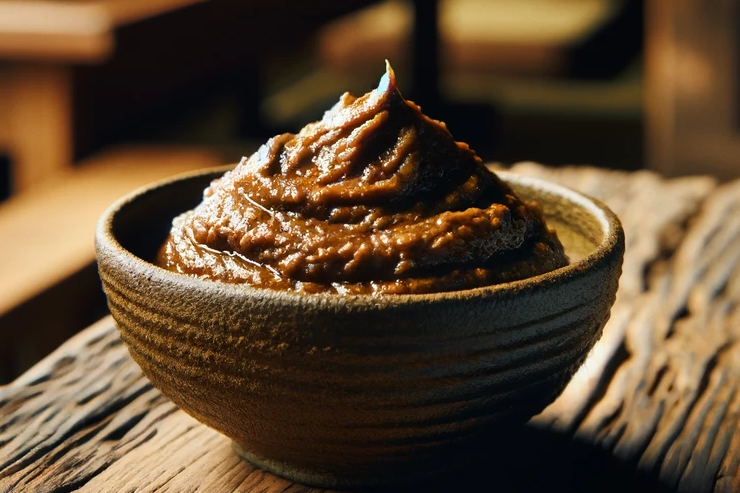Kombucha

Kombucha, the fermented tea drink that has gained popularity in the human health and wellness scene in recent years, raises questions when it comes to our four-legged friends. While the benefits for humans are well documented, from improving digestion to boosting the immune system, the question remains: is kombucha good for dogs too? In this article, we dive deep into the topic of kombucha as it relates to dogs, explaining what exactly kombucha is and discussing its potential benefits and drawbacks for your furry companion.
What is Kombucha?
Kombucha is a fermented beverage made by fermenting sweet tea with a culture of yeast and bacteria known as SCOBY (symbiotic culture of bacteria and yeast). This process results in a drink that is rich in various acids, probiotic bacteria, vitamins and enzymes. Kombucha is known for its unique, slightly sour taste and effervescent consistency, similar to a light sparkling wine.
Benefits for dogs
Potential source of probiotics
Kombucha contains live microorganisms that can potentially contribute to a dog's gut flora. Probiotics are known to aid digestion and can help boost the immune system. However, research on the specific effects of kombucha probiotics on dogs is still limited.
Antioxidant properties
The antioxidants found in kombucha may help protect cells from free radical damage. This could potentially contribute to your dog's overall health and well-being.
Disadvantages and risks
Acidity
The high acidity in kombucha can be problematic for dogs, especially those with sensitive stomachs or digestive issues. The acids could lead to stomach upset or other gastrointestinal discomfort.
Alcohol and caffeine content
During the fermentation process, a small amount of alcohol is produced which, while safe for humans, can be harmful to dogs even in small amounts. Similarly, caffeine, which occurs naturally in the teas used for kombucha, is toxic to dogs and can lead to a variety of health problems.
Sugar content
Kombucha is brewed with sugar, which is necessary for fermentation. Although some of the sugar is consumed during the process, residual sugar often remains. Too much sugar is harmful to dogs and can lead to weight gain and other health problems.
Risk of contamination
Homemade kombucha can contain contaminants if it is not produced under strict hygienic conditions. Harmful bacteria in kombucha could lead to serious illness in dogs.
Although kombucha offers numerous health benefits for humans, its suitability for dogs is not so clearly defined. The potential risks, particularly the acidity, alcohol, caffeine and sugar, as well as the possibility of contaminants, make it a drink to be consumed with caution when it comes to your dog's health. In many cases, there are safer alternatives designed specifically for dogs to support digestive health and overall well-being.
If you notice any signs of hypersensitivity or poisoning in your dog, you should see your vet immediately. We are not a substitute for a vet, but we try to be as accurate as possible. Every dog reacts differently and we recommend you get a second opinion or consult your vet if in doubt.
Stay healthy and take good care of your four-legged friend!😊
Similar to Kombucha
Kefir is a sour milk drink that is made by adding so-called kefir grains to milk. The kefir grains are a mixture of various bacteria and yeasts that live in a gel-like matrix. The microorganisms...
Kimchi is a traditional Korean dish consisting mainly of fermented Chinese cabbage and a variety of spices, including chili, garlic, ginger and spring onions. The fermentation is carried out by...
Sauerkraut has many benefits for your dog's health. It contains valuable vitamins, such as vitamins A, B, C, E and K, which are important for the skin, coat, blood formation, immune system and cell...
A traditional Japanese food Miso is a fermented paste consisting mainly of soybeans, a koji ferment (usually made from rice, barley or soybeans) and salt. This traditional Japanese food undergoes a...



